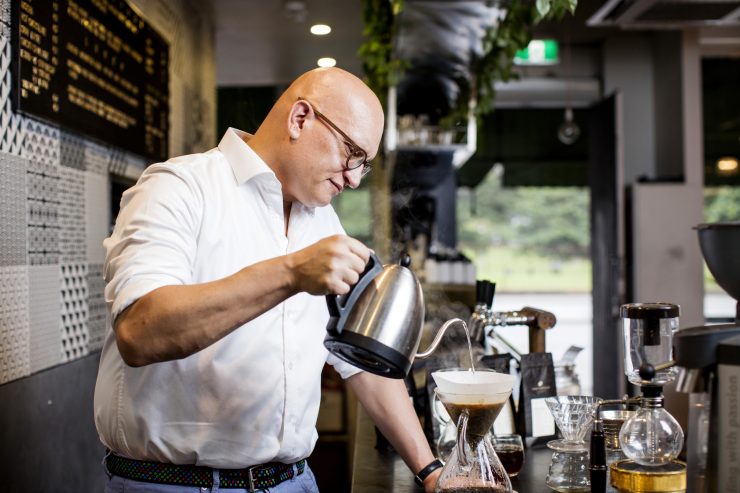
Since taking the helm as Managing Director of Toby’s Estate Coffee a year and a half ago, Italian-born Cosimo Libardo has been adapting to the sunny, relaxed lifestyle that Sydney has to offer. In-between the many barbecues, beach days, and practicing the colloquial lingo, Libardo has been overseeing the change, growth, and future development of the Toby’s brand.
Sprudge contributor Vic Frankowski recently sat down with Libardo in Sydney for a free-wheeling and globally-minded chat on the state of the specialty coffee industry—a follow-up of sorts to our departure interview with Libardo from 2014. We join Frankowski & Libardo over a Chemex at the Toby’s Estate Chippendale roastery and cafe.
So you’ve been in Sydney a year and a half now. What have you found to be the biggest differences between working for an international roaster and a machine supplier?
There are many differences but there are also many similarities. The differences are not many in terms of people, that’s becoming somewhat of an interesting experience in that sense. Obviously, Australia has got a much more fluid labor market and coffee is still in high demand and is growing more than in other countries. In this it’s different because people aren’t just here to have a job or a salary. Especially in coffee, they are here to do something relevant. My experience here is with Toby’s and the conversation is never money, it’s coffee. So in that sense I’ve noticed that in comparison Italy has much more of a labor market where needs in a job are to earn a salary. While here is a country where the opportunities are there, so people do what they like or seek to do what they like and that’s the biggest thing. Coffeewise it’s incredible: the opportunities are huge in terms of education and information exchange.
Coffee has always been my passion and I was in charge of selling, not even making, machines, which is the least virtuous position you can have in the coffee chain. Coffee always attracted me more, since even when I was in college, then it became an obsession for me. The green side and the roasting side is really what attracts me to coffee. The geekiness of turning this thing from green to brown and then from brown into liquid is what attracts me. So the geekiness of the equipment is one thing and now I’m focusing on the roasting and green coffee buying which are two pieces of the coffee chain I missed before. I knew about it as I had a lot of great people explain things to me but I never experienced it firsthand.
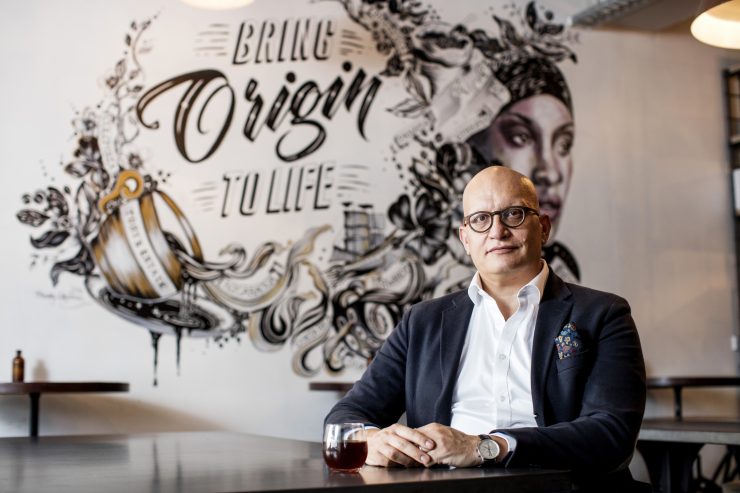
So have you had a chance to go to origin over this time?
For origin I’m currently setting up a plan which is brand new for the business, I can not talk too much about it yet. All I can say is that we’re changing the way we do things with origin. Using a few very knowledgeable people that live at origin globally to help me out in identifying new coffees with different processing methods, which for me is the new frontier in coffee now. The hybrids, the farming, and the processing are the areas where coffee is going to have a huge development in the future. So that’s where we are trying to be more relevant in that sense, capture what is happening and be at the forefront.
Toby’s has a farm in Panama. Will that be the testing ground for the project?
No. Not really. The point with having one farm, a few companies have gone in that direction and it looks like it’s becoming a bit of a trend for some. I personally think one farm limits you because it’s your farm. Whatever comes out of it has to be good, or otherwise it affects what you do. What we’re trying to do is actually start to work with many different farms and have a broader spectrum. And if you start talking about things such as sustainability, doing it only with one farm is very limiting. We sell coffees from many origins, hence this wouldn’t represent what we do. So the farm is definitely one element of the equation, but we need it to become more relevant and more true to what we’re trying to achieve, that’s why we’re opening up and going to many different farms.
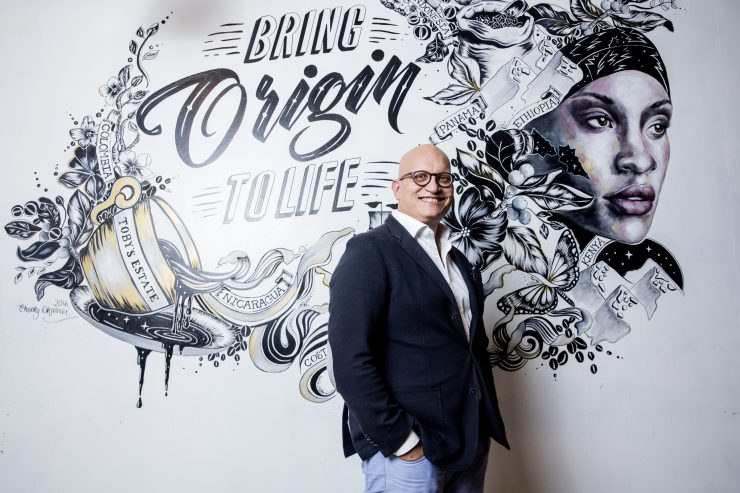
You came to Toby’s in a time when it had grown to being one of the largest specialty roasters in Australia, with expansion into new markets in Asia and the US. How do you oversee such an operation, and do the sister companies run similarly to the operations in Sydney?
We have our shop in Singapore, nine shops in the Philippines, and now five in New York. There is a Toby’s way, that’s not just verging on a brand. We have teams that are very different. For example, without coming as far as New York, we roast also in Perth. So we have a team that’s out there, and they adapt product to the local market. There are some common denominators but the rest is up to the team. When you operate in a different country, you end up adapting to the culture. Some things from Australia won’t work elsewhere, although in New York we were one of the first ones to bring the flat white, which is now in fashion in the US all of a sudden. So they’ve been true to their Australian origin and that’s where there are a few common ways of doings things in terms of brew recipes, not identical but similar.
We believe in certain things that are followed by our partners, and sometimes our partners are more into Toby’s than we are. So we’ve been very lucky in that sense when a brand attracts the right people.
I remember during my time in the UK when the flat white came over and the phenomenon around it. Do you think the flat white will take off in Italy?
Absolutely. I think cappuccino drinkers are definitely going to be into the flat white. I think the flat white is a refined version of the cappuccino. It’s the cappuccino for alien people.
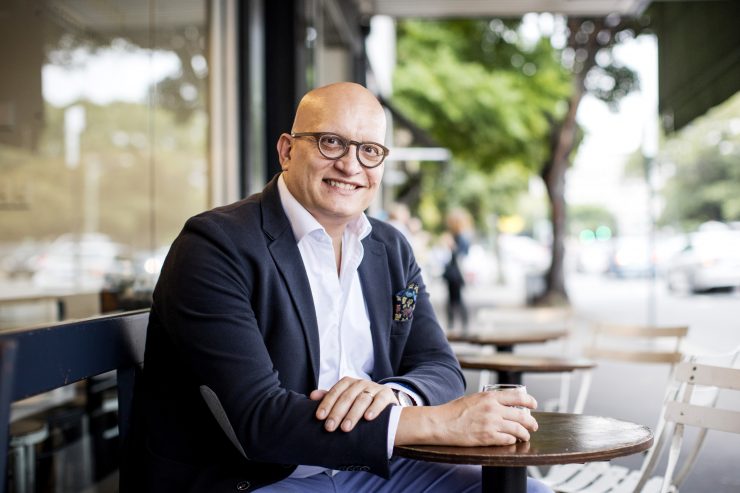
It’s a drink growing in popularity around the world. I remember being mesmerized as that was happening, as in Australia it’s just been a regular drink that’s always been on a menu, whereas overseas it claimed almost a revolutionary status. A cappuccino of the 21st century.
Well, if you think about the cappuccino, it revolutionized coffee drinks when it was invented in Italy. But it has become old, although don’t get me wrong, I like a cappuccino, but for me, the ratio of coffee and milk is very elegant in a flat white, very balanced. You can choose if you want to use a double ristretto or not; you can play with a few things within the flat white universe. I have to say that the flat white allows for expression of the artistry of a barista more than other drinks. I would like to see it more in competitions.
So would a flat white course replace the recently established milk course in the World Barista Championship?
Well, the rules of WBC are a bit loose though now, right? You could show up with a venti!
A robusta venti perhaps?
[Laughs] Well, I don’t know, but right now it’s a milk-based drink. No specific ratios. You could go with a piccolo. Also, my second favorite drink is the piccolo, for the same reason as the flat white as the ratio of coffee and milk. Also here in Australia, almond milk piccolos are becoming more popular than the flat white. Here you also get macadamia milk, almond milk…there are almost too many choices.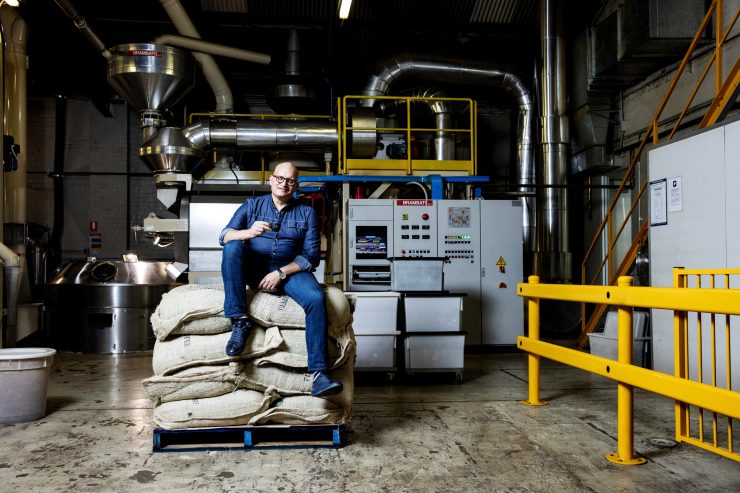
So what’s next for Toby’s? Over the time you’ve been here, things have changed and the company has grown.
We’re not about world domination. We are trying to identify the right partners to believe in the brand and to do it right this is where we found the right partners and found the right field. Obviously, Toby’s has grown a lot and quickly by popular demand in the past few years. What we are trying to do is solidify what has been done and redefine the meaning and purpose of this business. I think a lot of companies claim to do specialty without doing it. My theory about the specialty industry is that it has grown very quickly and that it is shallow. I’ve been ranting about it on social media, but there are a lot of people who get into coffee driven by passion but then the real knowledge is not there to back it up. That matters in an industry that is growing very quickly by demand.
If you take Asia for example, I have a lot of data being in the position we are in, I can see demand in Asia is growing by 10% a year while the rest of the world is 2.5%, Australia is 3.5%. But imagine places like Indonesia or China will demand altogether 2.5 million more bags a year. This will put pressure on the whole supply chain, but it will also put pressure on baristas and skills. The demand for training in China is massive. So what’s going to happen to the coffee world is really unknown. The point is that companies that will operate really well and survive into this very quickly changing market need to have the fundamentals right. For the specialty roasters, the price of coffee will go up, and a lot of the guys who are not set up to do real specialty will not benefit from the new scenario.
Companies like Toby’s, amazingly, are neither too big nor too small, but rather the right size for doing true specialty. One of the plans that we have is to certify the coffee that we get being specialty grade. So anything that goes into our blends is going to be done in a transparent way. That’s where the new origin program is going to bring us to. Working with labs and in close cooperation with experts in the industry is going to allow us to do more sustainable work. Working more directly with farms, with multi-tier buying programs. The first worry of a farmer is, “Am I going to sell my crop next year?”
In the end, we’re trying to be not bigger but better at what we do and bring elements of leadership. Think about Australia: it’s a big island far away from other places and logistically it’s difficult to bring good coffee from other areas. It takes a lot of time to establish the system. This is what we’re going to bring to the table, as well as knowledge, and we’re investing heavily into education. We’ve started hosting knowledge talks, including a recent one Professor Chahan Yeretzian from the University of Zurich, which I think is a worldwide center of excellence for coffee research. So we’re creating a number of ties with industry experts on different levels as well as providing internal education for our teams with the company reacting really quickly to what we’re bringing to the table.
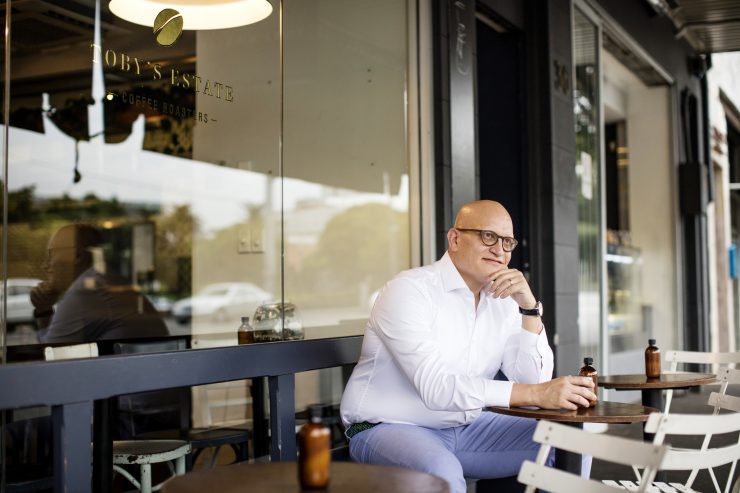
So I guess one more question to finish up. If you had one place to open a Toby’s Estate anywhere in the world where would it be?
That’s an interesting question. I actually have a few places.
Okay, well let’s go with a top three then.
Top three, I would definitely go Kyoto first. Another one would be Italy—it would be just so different to bring Toby’s Estate there. For me, being from Italy, I would be so curious to see what would happen. I mean, Starbucks is going to Italy finally, right? Third Wave roasters are starting to appear in Italy and brands will move in. Italy won’t be able to resist the change because obviously going to keep its traditions, but there are going to be people that will want to have a better experience with coffee.
The third place, I don’t know, I have a list of many places which I see us going. I would say somewhere in Africa would be an interesting experience as a lab. This project would not be commercial—it wouldn’t be about sales—it would be more about learning and what you could get out of it.
Vic Frankowski is a Sprudge contributor, photojournalist, and coffee professional based in London. Read more Victor Frankowski on Sprudge.
Photos by James Horan courtesy Toby’s Estate.
The post Cosimo Libardo of Toby’s Estate Coffee: The Sprudge Interview appeared first on Sprudge.

